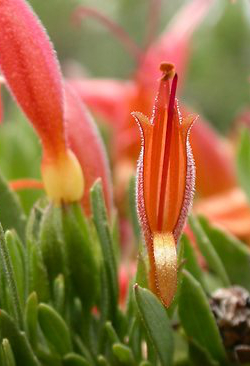Animal love leaves plants behind
 Our focus on saving charismatic animals could leave plants at risk of extinction.
Our focus on saving charismatic animals could leave plants at risk of extinction.
When Australians attempt to save threatened species, they tend to focus on cute, cuddly animals like koalas, kangaroos, wombats, or even vibrant native birds.
But according to a new study, the love of animals – called ‘Zoocentrism’ – means that plants are under-represented in extinction risk databases.
Australia has the highest proportion of unique plant species which occur nowhere else in the world, so this shortfall in extinction risk-assessments for plants is a matter of global significance.
The findings “draw attention to a critical issue that threatens our ability to protect plant diversity and all dependent organisms, including ourselves,” says Macquarie University’s Matthew Alfonzetti, lead author of the paper.
“In light of the current global biodiversity crisis, coupled with Australia’s recent and projected catastrophic bushfire seasons, droughts, and other worsening stressors, the need for understanding threats to plants has never been greater.”
Of a list of 15,544 plant species found exclusively in Australia, the research finds that only 7 to 24 per cent of endemic Australian plants have an extinction risk assessment. In comparison, 29 to 61 per cent of endemic mammals have been assessed.
“There is a clear bias in the completion of risk assessments used to list species as threatened which highly favours mammals and (to a lesser degree) birds over plants,” Alfonzetti says.
“The number of Australian plants that currently have an extinction risk assessment represents a significant underestimation of the actual proportion that are likely to satisfy extinction-risk criteria for listing as threatened.”
These results mirror the typically higher representation of animals in conservation biology research; comparatively less attention is given to hyper-diverse but ecologically important groups such as plants and invertebrates.
“This phenomenon is largely attributed to the cultural and psychological factor of ‘zoocentrism’ (people’s generally greater fondness of, perception of importance, and ability to see and remember animals compared to plants) and other systemic factors of very long standing such as the complex feedback interactions between scientific output and societal interests,” he said.
The full study is accessible here.








 Print
Print